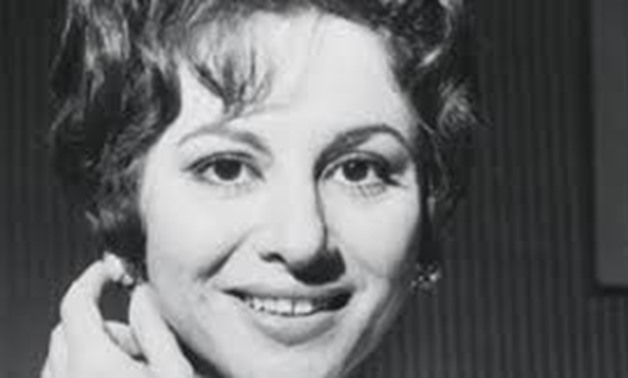
File – Faten Hamama
CAIRO – 27 March 2018: An agreement has been signed between Egyptian director Magy Anwar, head of Faten Hamama Film Festival, and the officials of the Tunisian Eldalia Film Festival to screen the 2018 Faten Hamama Film Festival winners in Tunis.
The next edition of the festival will be held May 2-7 at the Cairo Opera House’s Hadara Theater, state-owned newspaper Al-Ahram reported on Monday. However, screening the winning films in Tunis has not yet been announced.
Anwar recounted to Al-Ahram that the festival in the coming years is going to cooperate with different international exhibitions to present young Egyptian directors’ films to international audiences.
The Faten Hamama Film Festival has been held annually since it launched in 2015. The festival screens Egyptian and international filmmakers’ documentaries, feature films and short films. The festival honors the name of late iconic Egyptian actress Faten Hamama.
Who is Faten Hamama?
Hamama was a film icon very popular for two decades, between the 1950s and 1970s. She starred in more than 100 films and TV shows, which made her a celebrated pioneer in the Egyptian film industry.
Born in 1931 in the Egyptian Delta city of Mansoura, Hamama made her debut as an actress at the young age of seven, when she starred in “Youm Saeed” (Happy Day) alongside legendary singer Mohamed Abdel Wehab. She was named “Egypt’s own Shirley Temple” at that time.
Hamama’s artistic career reached its peak in the 1950s, and hence she was chosen to participate in the American movie “Cairo” in 1963.
Due to her stardom, Hamama was honored with the nickname "Lady of the Screen”. She made a comeback during the 1990s with the TV show “Dameer Abla Hekmat” (The Conscience of Ms. Hekmat) and at the start of the millennium when she starred in the television mini-series “Wajh al-Qamar” (Face of the Moon).
She was also well-known for her marriage with another famous Egyptian movie star, the internationally renowned Omar Sharif. The love story of Hamama and Sharif started when they worked together in Youssef Chahine’s movie “Sra’a fe El Wady” (Struggle in the Valley). Sharif converted to Islam to marry her in 1955, but they divorced 20 years later in 1974. Sharif was her second marriage, as she had wed Ezzeldine Zulficar in 1947 in a marriage that ended in 1954. She later married her third husband, laboratory physician Mohammad Abdel Wahab Mahmoud.
The Top 100 Egyptian Films list compiled by the cinema committee of the Supreme Council of Culture in Cairo contains eight movies of Hamama. She was named “Star of the Century” by Egyptian writers and critic organizations at the Alexandria International Film Festival in 2001.
Hamama strongly supported the 1952 Revolution. Between 1966 and 1971, Hamama lived outside Egypt because she had refused to cooperate with the Egyptian Intelligence Agency. The agency was full of corruption at that time, and its head, Salah Nasr, was forcing Egyptian actresses to cooperate with them. When she moved back, she often selected roles that delivered a pro-democracy message or criticized Egypt's laws.

Comments
Leave a Comment